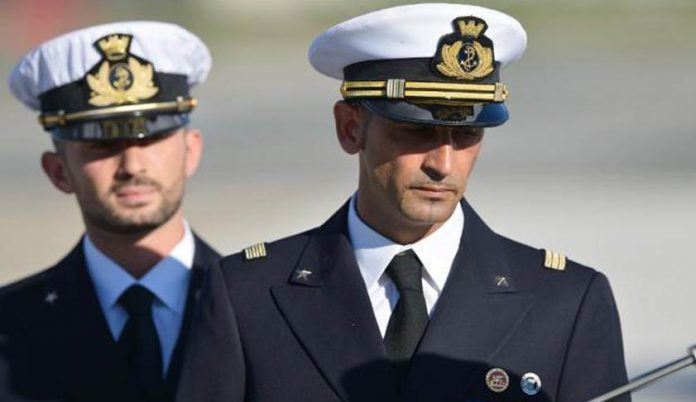
In this article, Neel Vasant of SLS, Pune does a case analysis of Enrica Lexie Case.
If we look into the context of Maritime Law several incidents can be seen where a foreign vessel has violated certain rules and regulation of another country, on voyage. In the year 2012 one such incident happened in the territorial waters of our country, India. The study of this particular case is very interesting as rules of several Codes such as the Indian Penal Code, Criminal Procedure Code and several International Treaties such as the United Nations Convention on Law of the Sea (UNCLOS) are applicable. This is an attempt to analyse several aspects involved in this case as lucidly as possible.
Brief Facts
- On 15th February, 2012 two Indian fishermen were killed off the coast of Kerala, India, aboard the St. Antony after they were fired upon by Italian marines on board the Italian ship Enrica Lexie.
- Enrica Lexie was travelling from Singapore to Egypt and St. Anthony returning back to its destination from a fishing expedition.
- Out of nowhere there started shooting when St. Anthony was 20.5 Nautical Miles off Indian Cost within contiguous zone area of India’s Exclusive Economic Zone.
- The Indian Coast Guard got hold of Enrica Lexie somewhere near the Lakshadweep Islands and compelled it to proceed it to Kochi.
- Names of two Italian Marine Officers Captured were; – Massimiliano Latorre & Salvatore Girone.
- Charges of Murder (Section 300 of the Indian Penal Code), Mischief (Section 425 of the Indian Penal Code) etc. were levied against the captured Italian Mariners.
Issue of Jurisdiction
- In order to protect the Interest of their citizen, Italy challenged the arrest before the Kerala High Court alleging that India has no jurisdiction to try the case at the very first Instance as the incident happened not in the territorial waters on India but on the International Waters.
- Italy has cited Article 97 of the United Nations Convention on the Law of the Sea (UNCLOS): “In the event of a collision or any other incident of navigation concerning a ship on the high seas”, only the flag state of that ship can launch penal proceedings. By definition, a flag state is the state in which a vessel is registered. On the high seas, flag states hold sole jurisdiction over oceangoing vessels. (Art. 217 UNCLOS).
- However, India bases its jurisdictional claims on domestic legislation which confers the Indian courts with the jurisdiction to try a person (including a foreigner) in respect of an offence committed on board a ship registered in India (Sections 3 and 4 of the Indian Penal Code, 1860 and Sec.188 of the Code of Criminal Procedure).
- On the other hand, the Italian Government gives the argument keeping in mind various provisions of UNCLOS, 1982. Article 97 of UNCLOS focuses on ‘Penal jurisdiction in matters of collision or any other incident of navigation’. According to this Article no penal or disciplinary proceedings may be instituted against such person except before the judicial or administrative authorities either of the flag state or of the State of which such person is a national.
- Secondly, according to Article 92, ships shall be subject to the exclusive jurisdiction of flag state while on the high seas.
- Thus. it is seen that claims of both the nations were equally strong. Both the nations have their reasons as to why the case should be tried at their respective countries. he general principle of criminal procedure that a trial shall ordinarily be conducted at the place where the offence has been committed, justifies the Indian position. Additionally, a trial conducted in a foreign land would deprive the victims of their right to participate which is an essential aspect of fair trial. Moreover, considering the convenience of conducting investigation the case is tilted towards India.
- The Supreme Court ruled that as per the Indian government notification issued in pursuant of the Convention on the Law of the Sea, India has jurisdiction over the entire 200 miles Exclusive Economic Zone, and thus the case can be triable in India. The court also held that only Indian government not the Kerala government can exercise the jurisdiction.
Final Outcome
- When nothing was going in their way, the Italian Government approached the International forum to look into the matter. The forum the country approached the International Tribunal for the Law of Sea (ITLOS). Again, at this forum Italy contended that India had no jurisdiction to try this case. On the other hand, India outrightly rejected Italy’s contention and also raised an issue that the International Tribunal also had no power to hear the case involving two individual nations, which was later rejected by ITLOS.
- Amidst all these, the relations between both these nations started to get sour. There was political tension all around.
- In August 2015, the International Tribunal for the Law of Sea ordered both the countries to refrain themselves on filing any new suite and thus try to solve the existing problem amicably. Abiding the order, The Supreme Court of India had stayed all the proceedings related to this case.
- To compensate the victims The Government of Kerala granted aid of 5 Lakh Rupees and the same amount was given by The Government of Tamil Nadu. Over and above the monetary aid The Government of Kerala also employed the victim’s wife.
- The Italian Government also gave a monetary compensation of 1 Crore Rupees to the victim in this case of Maritime Disaster.
 Serato DJ Crack 2025Serato DJ PRO Crack
Serato DJ Crack 2025Serato DJ PRO Crack







 Allow notifications
Allow notifications



Absolutely fab..
Excellent write up…….
And was very usefull for indepth knowledge…….